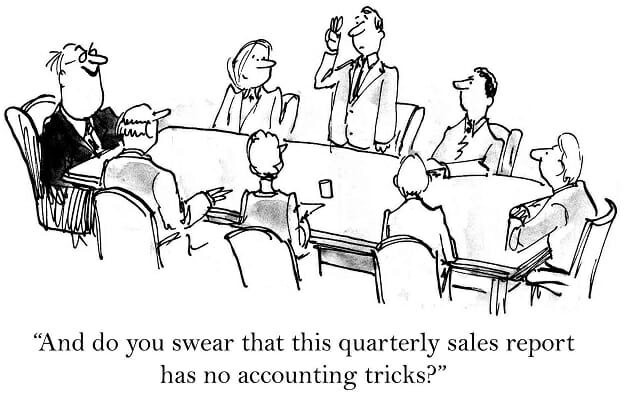
Over 2 million + professionals use CFI to learn accounting, financial analysis, modeling and more. Unlock the essentials of corporate finance with our free resources and get an exclusive sneak peek at the first chapter of each course. Start Free
Accounting ethics is an important topic because, as accountants, we are the key personnel who access the financial information of individuals and entities. Such power also involves the potential and possibilities for abuse of information or manipulation of numbers to enhance company perceptions or enforce earnings management. Ethics is also absolutely required in the course of an audit. Without meeting the requirements of auditing and accounting ethics, an audit must instantly be paused.

Ethics and ethical behavior refer more to general principles such as honesty, integrity, and morals. The code of professional conduct, however, is a specific set of rules set by the governing bodies of certified public accountants. Although the rules set out by different bodies around the world are unique, some rules are universal. Let’s take a closer look at some of these important rules.
One of the key rules set out by professional accounting bodies in North America is the idea of independence. This is the idea that, as an auditor, you must be totally objective and must be without ties to or relationships with the client since that could potentially impair your judgment and impair the overall course of the audit work.
There are two forms of independence:
Independence in fact refers to any factual information such as whether you, as an auditor, own any shares or other investments in the client firm. These facts are usually easy to determine.
Independence in appearance, however, is more subjective. Let’s say, for example, that as an auditor you were invited to a year-end party at the client firm. The party turns out to be extremely luxurious and you also receive a nice watch as a gift. In appearance, would the auditor, who was invited to the party and who also received a gift, be able to maintain independence in the audit? In order to solve a potential conflict of interest, a reasonable observer’s test is used – i.e., what would a reasonable observer say about the situation?
There are always threats and situations that can reduce the level of independence. Let’s take a look at some of these threats:
Some other rules outlined by professional accounting bodies include the following:
Thank you for reading CFI’s explanation of Accounting Ethics. To keep advancing your career, the additional resources below will be useful:
Gain in-demand industry knowledge and hands-on practice that will help you stand out from the competition and become a world-class financial analyst.